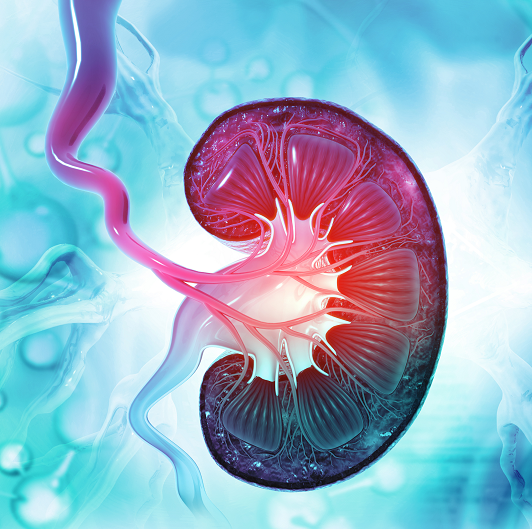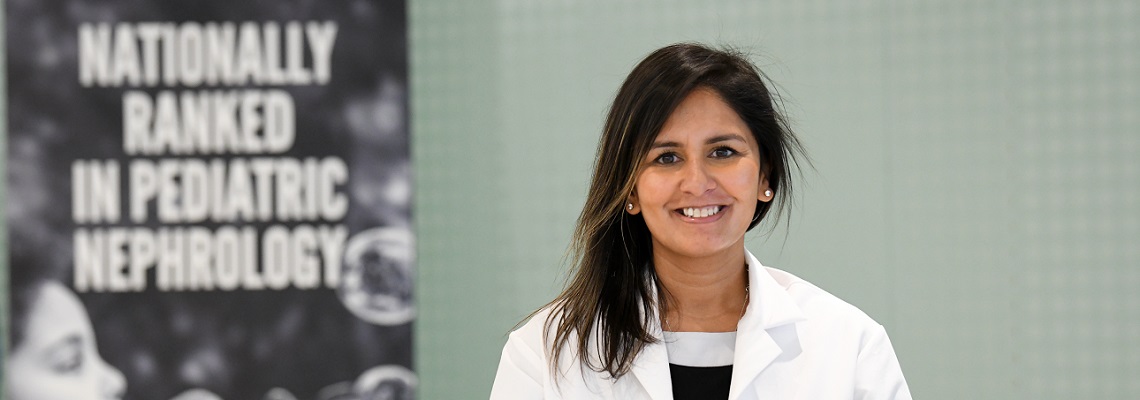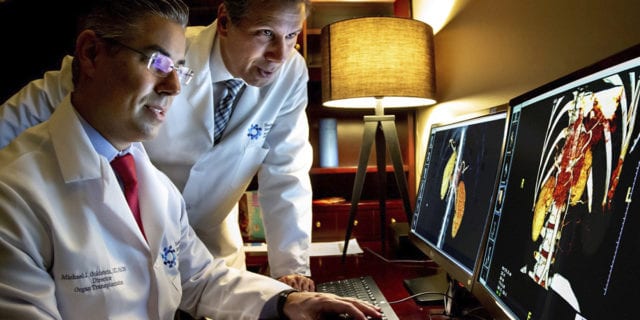

Diagnosis and Treatment of Kidney Disorders in New Jersey
Expert Kidney Care for All Stages of Disease
Hackensack Meridian Health provides expert kidney and nephrology care across New Jersey, delivering advanced diagnosis and treatment for conditions such as kidney stones, chronic kidney disease, and kidney failure. Patients in North, Central, and South Jersey can access nationally recognized specialists close to home. As New Jersey’s #1 ranked health network by U.S. News & World Report, we combine clinical excellence, innovation, and compassionate care to help preserve kidney function and improve quality of life.
Kidney Conditions We Treat
- Acute kidney injury. Sudden trauma to your kidneys causes them to stop filtering waste products from your blood, leading to a buildup of waste and fluid imbalances.
- Chronic kidney disease. Gradual loss of kidney function due to physical damage.
- End-stage renal disease or kidney failure. Your kidneys stop working and you require dialysis or a kidney transplant.
- Kidney stones. Pebble-like deposits that form in your kidney.
- Glomerular diseases. Damage to the glomeruli prevents your kidneys from effectively separating waste and liquid from your blood.
- Polycystic kidney disease. An inherited disorder that causes fluid-filled cysts in your kidneys that can grow large and cause complications.
- Fabry disease. An inherited disorder in which a buildup of fat called globotriaosylceramide causes kidney damage.
- Fluid, electrolyte and acid base abnormalities. Fluid, electrolyte, or acid base abnormalities occur when your kidneys are not working well.
- High blood pressure or hypertension. Uncontrolled high blood pressure, also called primary hypertension, leads to kidney failure. Secondary high blood pressure is caused by another medical condition, such as kidney disease.
- Diabetic nephropathy. High blood glucose levels in people with diabetes leads to kidney disease.
- Rhabdomyolysis. Occurs when injured muscle breaks down and releases a protein into the bloodstream that damages kidney cells.
- Tumor lysis syndrome. Occurs during cancer treatment when a large number of tumor cells are destroyed and their contents released into the bloodstream at the same time, with the resulting waste causing kidney damage.
Treatments & Procedures
- Dialysis – In-center or home-based hemodialysis and peritoneal dialysis
- Therapeutic plasma exchange – Treatment for autoimmune or antibody-related kidney disorders
- Minimally invasive & robotic kidney surgery – Performed by New Jersey’s most experienced surgical teams
- Kidney and pancreas transplantation – Advanced surgical and post-transplant care
- Medication management – Individualized plans to protect and optimize kidney function
- Lifestyle counseling – Support for diet, hydration, and blood pressure control
Accurate Diagnosis Of Kidney Conditions
The key to effectively treating your kidney condition is to have an accurate diagnosis. Equipped with the most advanced laboratory and imaging technology, our pathologists and uroradiologists partner with your kidney doctor on testing to make an accurate diagnosis.
Expert Kidney Specialists In New Jersey
Find a nephrologist or kidney care location close to home.
Find A Nephrologist
Find a Kidney Care Location
Why Choose Hackensack Meridian Health
- Comprehensive Kidney Network: Statewide specialists in nephrology, dialysis, and transplant.
- National Recognition: Part of New Jersey’s #1 ranked health system by U.S. News & World Report.
- Innovative Care: Access to robotic surgery and kidney transplant programs.
- Advanced Diagnostics: Cutting-edge imaging and lab testing for early detection.
- Collaborative Expertise: Multidisciplinary care with urology, cardiology, and endocrinology specialists.
Frequently Asked Questions
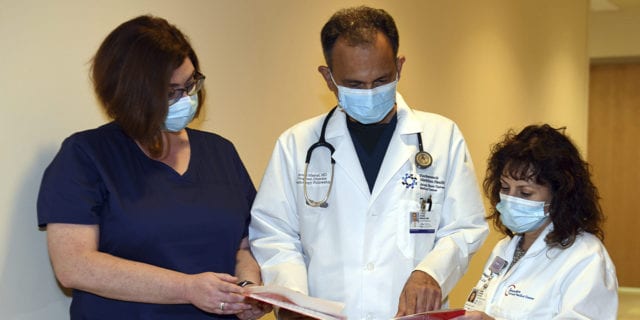
Surveillance of UDT Flow Reduces Thrombotic Events in Hemodialysis
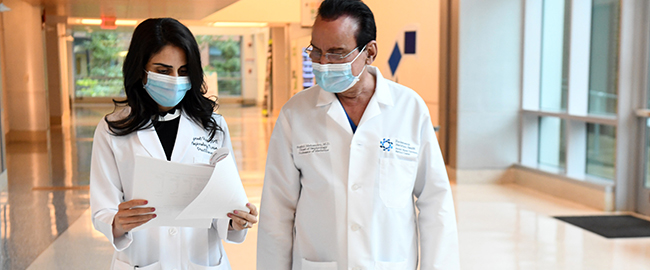
Syndrome From Hard Seltzer Consumption
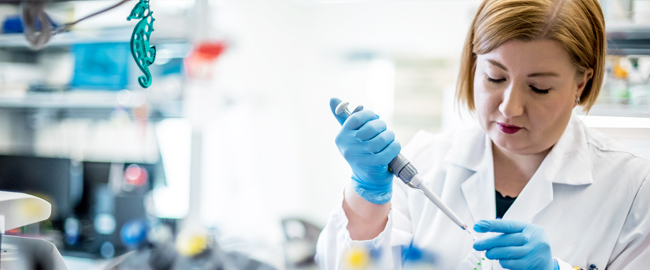
See More Articles
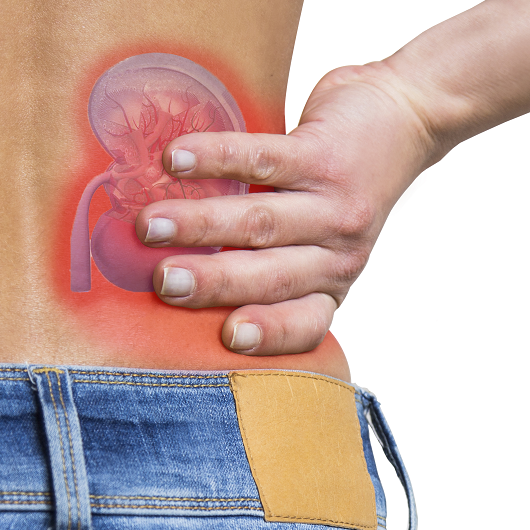
Can a Kidney Stone Go Away on its Own?
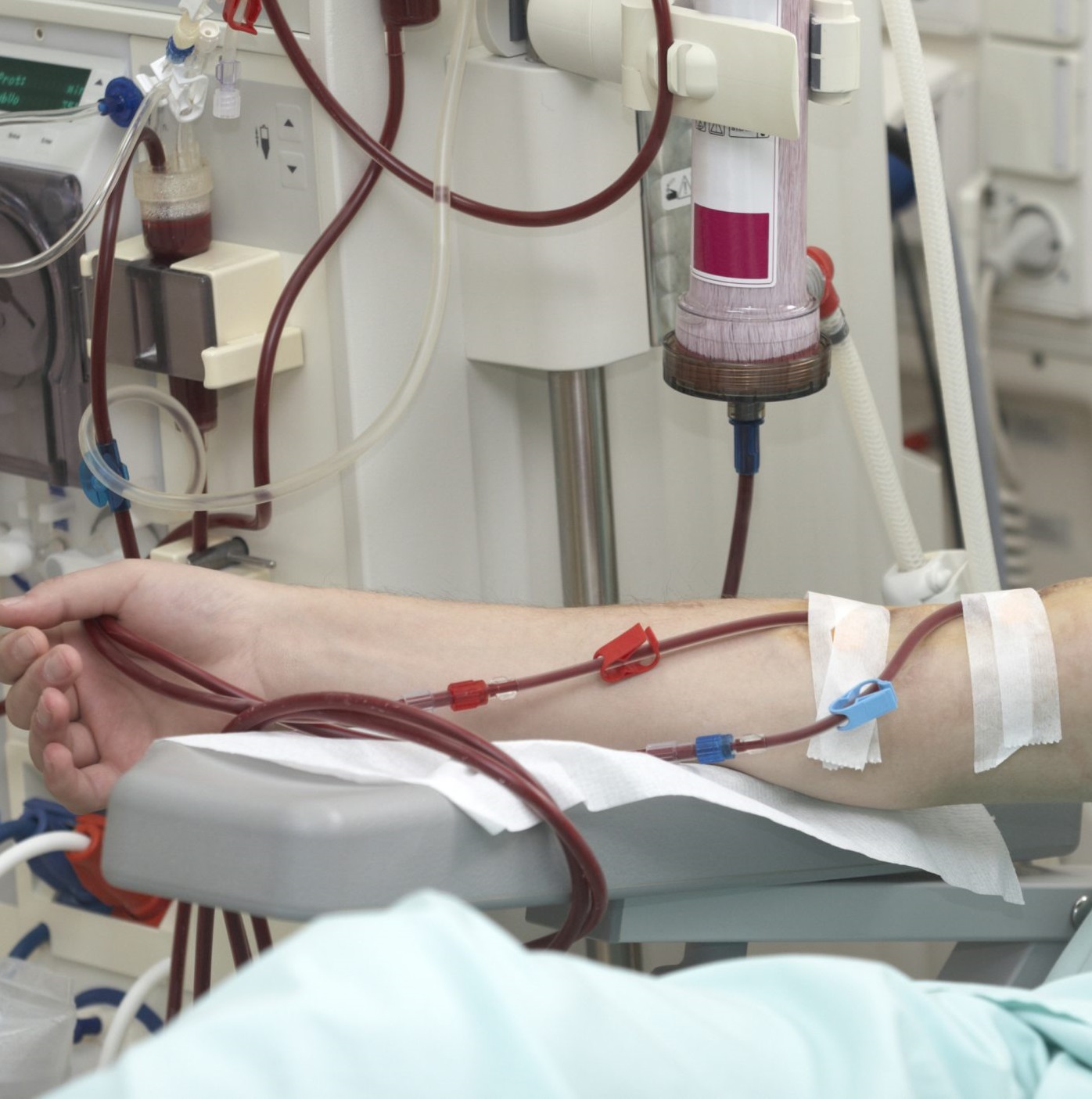
Tips for Staying Comfortable During Dialysis
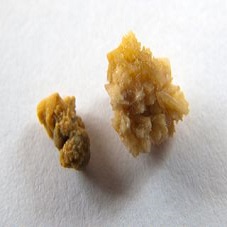
Why People Get Kidney Stones
